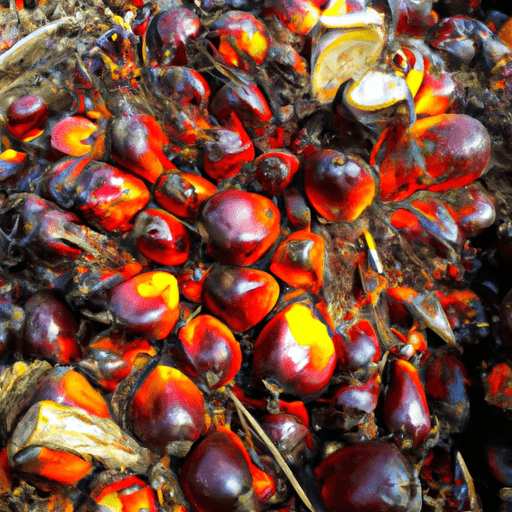Palm Oil
Palm Oil
Introduction to Palm Oil
Palm oil is a versatile and widely used vegetable oil derived from the fruit of the oil palm tree. It is rich in natural antioxidants, vitamins, and nutrients, making it highly desirable in various industries such as food, cosmetics, and biofuel. This article will provide an in-depth exploration of the history, production, uses, advantages, sustainability, controversies, health implications, and tips for choosing sustainable palm oil products.
History and Production of Palm Oil
The history of palm oil dates back thousands of years, with its origins traced to ancient civilizations in West Africa. It was later introduced to other parts of the world through trade routes, particularly by European explorers. However, it wasn’t until the 20th century that palm oil production began to flourish on a larger scale.
Today, the major palm oil-producing countries include Indonesia, Malaysia, Thailand, Colombia, and Nigeria. These countries have extensive palm plantations, which contribute significantly to global palm oil production. The oil palm trees require favorable tropical climates and well-drained soil to thrive. Their fruits are harvested and processed to extract the oil, which undergoes refinement processes to obtain various forms such as crude palm oil or palm kernel oil.
Uses and Applications of Palm Oil
Palm oil finds numerous applications across various industries. In the food industry, it is commonly used as a cooking oil and an ingredient in baked goods, snacks, and margarine due to its high saturated fat content. Its unique solid and semi-solid properties at room temperature make it suitable for food formulations.
Additionally, palm oil is a vital ingredient in the production of personal care products, including soaps, shampoos, cosmetics, and detergents. Its ability to moisturize and protect the skin, along with its stability, makes it a preferred choice for manufacturers.
Furthermore, palm oil serves as an important feedstock for the production of biofuels, particularly biodiesel. Its renewable nature and high energy content make it an environmentally friendly alternative to fossil fuels.
Advantages and Benefits of Palm Oil
Palm oil offers numerous advantages and benefits. Firstly, it is highly efficient in terms of land use, as the oil palm tree yields a significantly higher amount of oil per hectare compared to other oil crops. This productivity makes palm oil a cost-effective and sustainable option.
Moreover, palm oil has a high smoke point, making it ideal for high-temperature cooking methods such as frying. Its stability helps to maintain the quality and flavor of food products while also extending their shelf life.
In addition, palm oil contains a balanced proportion of saturated and unsaturated fatty acids, which contribute to its versatility and functionality in various food applications. The presence of natural antioxidants in palm oil also provides health benefits, supporting the body’s defense against free radicals.
Sustainability and Environmental Considerations
Despite its benefits, palm oil production has raised concerns due to its impact on the environment and biodiversity. Expansion of palm plantations has led to deforestation, particularly in regions with valuable ecosystems such as tropical rainforests. Deforestation can result in the loss of habitat for endangered species, disruption of ecosystems, and increased greenhouse gas emissions.
To address these concerns, sustainable practices such as the adoption of certified sustainable palm oil (CSPO) have been introduced. CSPO ensures that the palm oil is produced responsibly, without contributing to deforestation and taking into account social and environmental considerations.
Controversies and Criticisms Surrounding Palm Oil
Palm oil has faced criticism from environmentalists, animal welfare organizations, and human rights advocates due to the negative impacts associated with its production. The expansion of palm plantations often involves land grabbing, forced labor, and the exploitation of indigenous communities. Additionally, the use of certain agrochemicals and unsustainable farming methods further adds to the controversies surrounding palm oil.
However, it is important to note that sustainable practices, certification programs, and responsible sourcing efforts are continually being implemented by both producers and consumers to mitigate these concerns and promote positive change within the industry.
Health Implications and Nutritional Value
The nutritional composition of palm oil has been a topic of interest and debate in the health and nutrition community. While palm oil is high in saturated fat, it is essential to distinguish between the different types of saturated fats. The saturated fats present in palm oil comprise mainly of palmitic and stearic acids, which have been shown to have neutral or even potentially beneficial effects on cholesterol levels.
Furthermore, palm oil contains vitamin E tocotrienols, which possess antioxidant properties and may contribute to various health benefits, including cardiovascular health and protection against oxidative stress.
Tips for Choosing Sustainable Palm Oil Products
Consumers can make informed choices by selecting products that use certified sustainable palm oil. Look for certifications such as the Roundtable on Sustainable Palm Oil (RSPO) or the Palm Oil Innovation Group (POIG), which ensure adherence to stringent sustainability criteria. By supporting these initiatives, individuals can encourage the adoption of responsible farming practices and contribute to the preservation of forests and biodiversity.
Conclusion
Palm oil plays a significant role in numerous industries, offering a wide range of applications and benefits. However, the expansion of palm plantations has raised concerns about deforestation, environmental impact, and human rights abuses.
To address these issues, it is crucial to support sustainable palm oil practices and certification programs. By encouraging responsible sourcing and consumption, we can promote a more environmentally and socially conscious palm oil industry while still benefiting from its versatility and nutritional value.
SHIPPING DOCUMENTS
Bill of Lading
Certificate of Origin
SGS Inspection Certificate
Phytosanitary Certificate
Fumigation Certificate
Commercial Invoice
Packing List
To Contact:
: +234(80)66579079
[email protected]
cc: [email protected]


TRADE PROCESS
Cost Insurance and Freight (CIF):The seller handles everything from loading the vessel, paying for insurance, and shipping the product to the country the buyer wants it delivered.
Freight On Board (FOB):The seller is responsible for handling the transportation of the goods to the port of shipment and loading cost. Once the goods are loaded on the ship, all liabilities transferred to the buyer. Liabilities like unloading, insurance, marine freight transport and transporting products to its destination.
We Are Ready To Handle Your Request
Enter your details and we will get in touch to discuss your project






